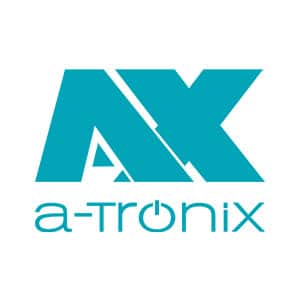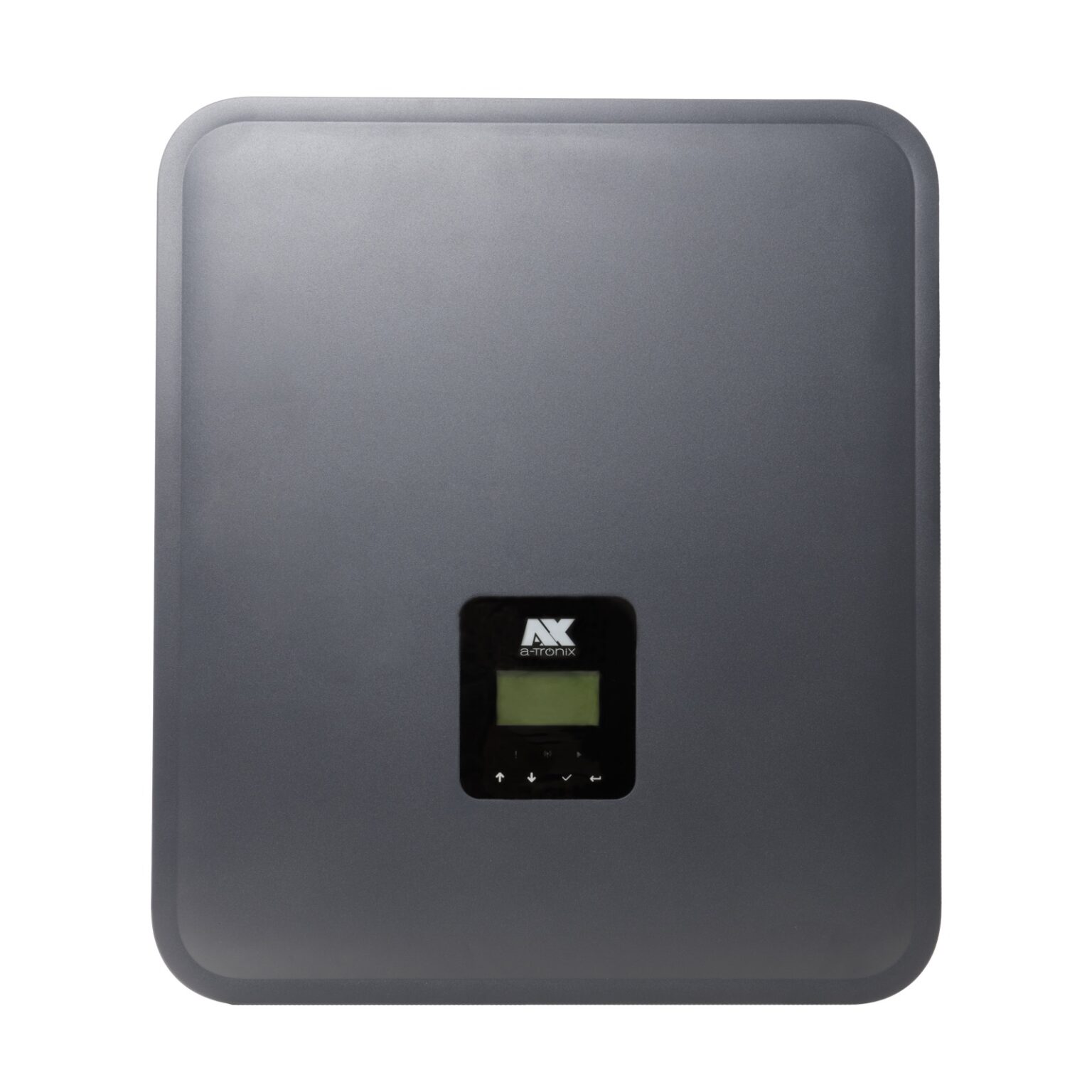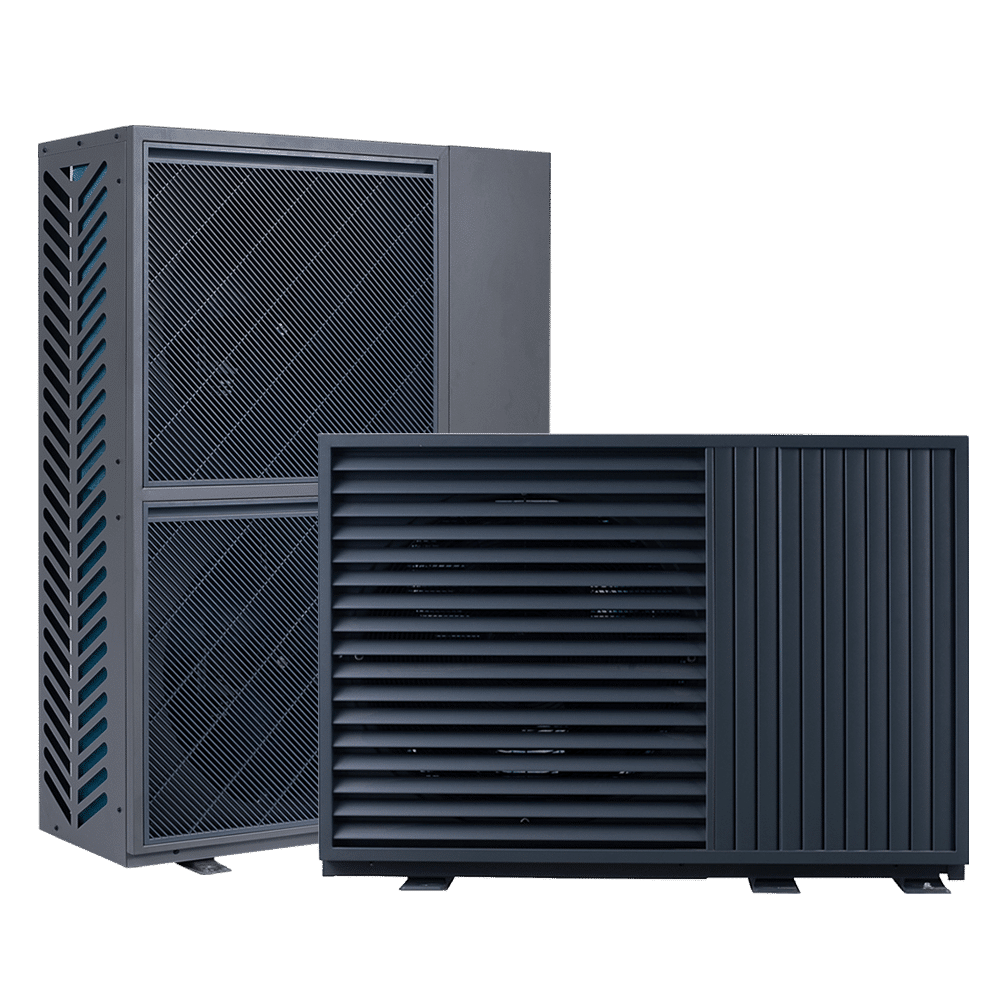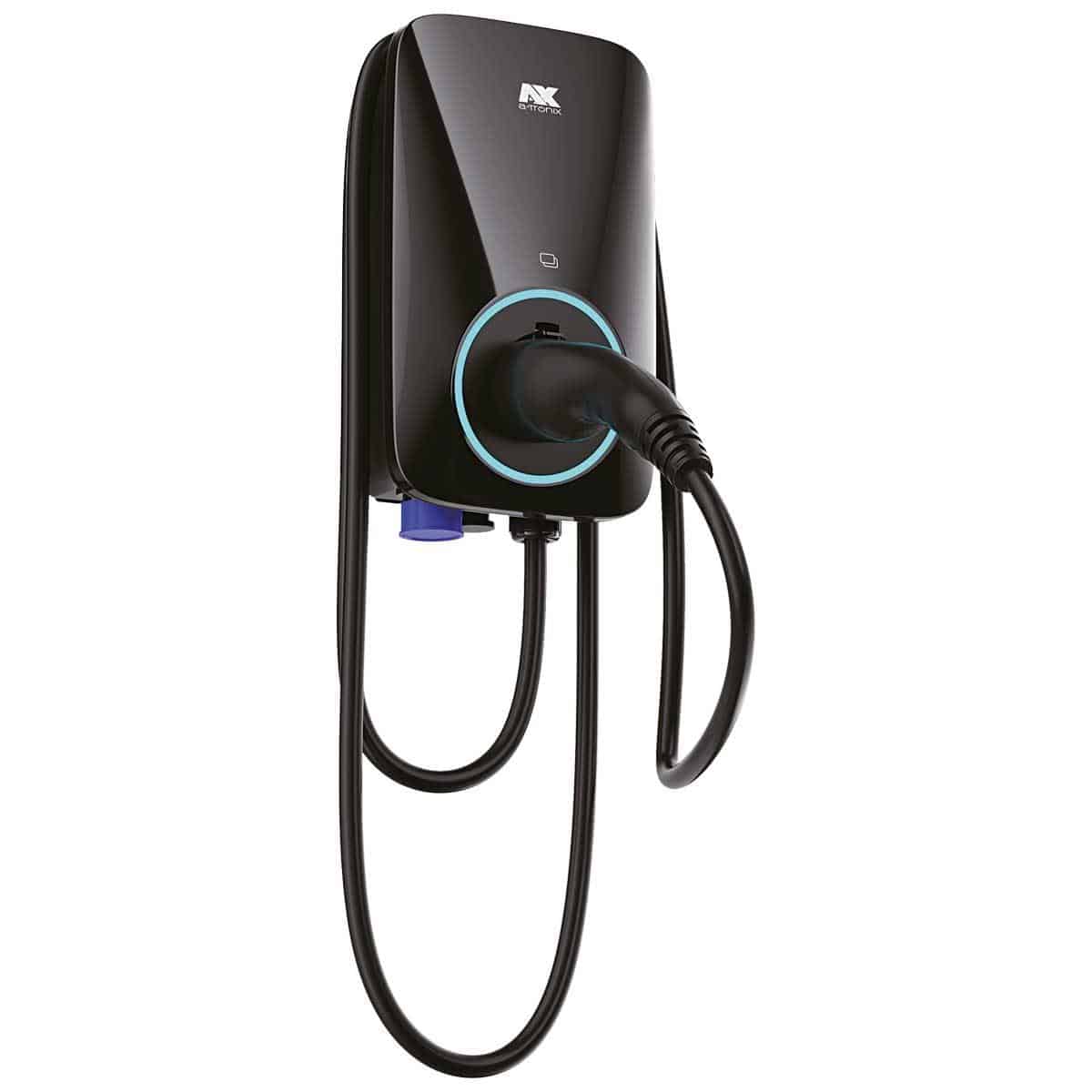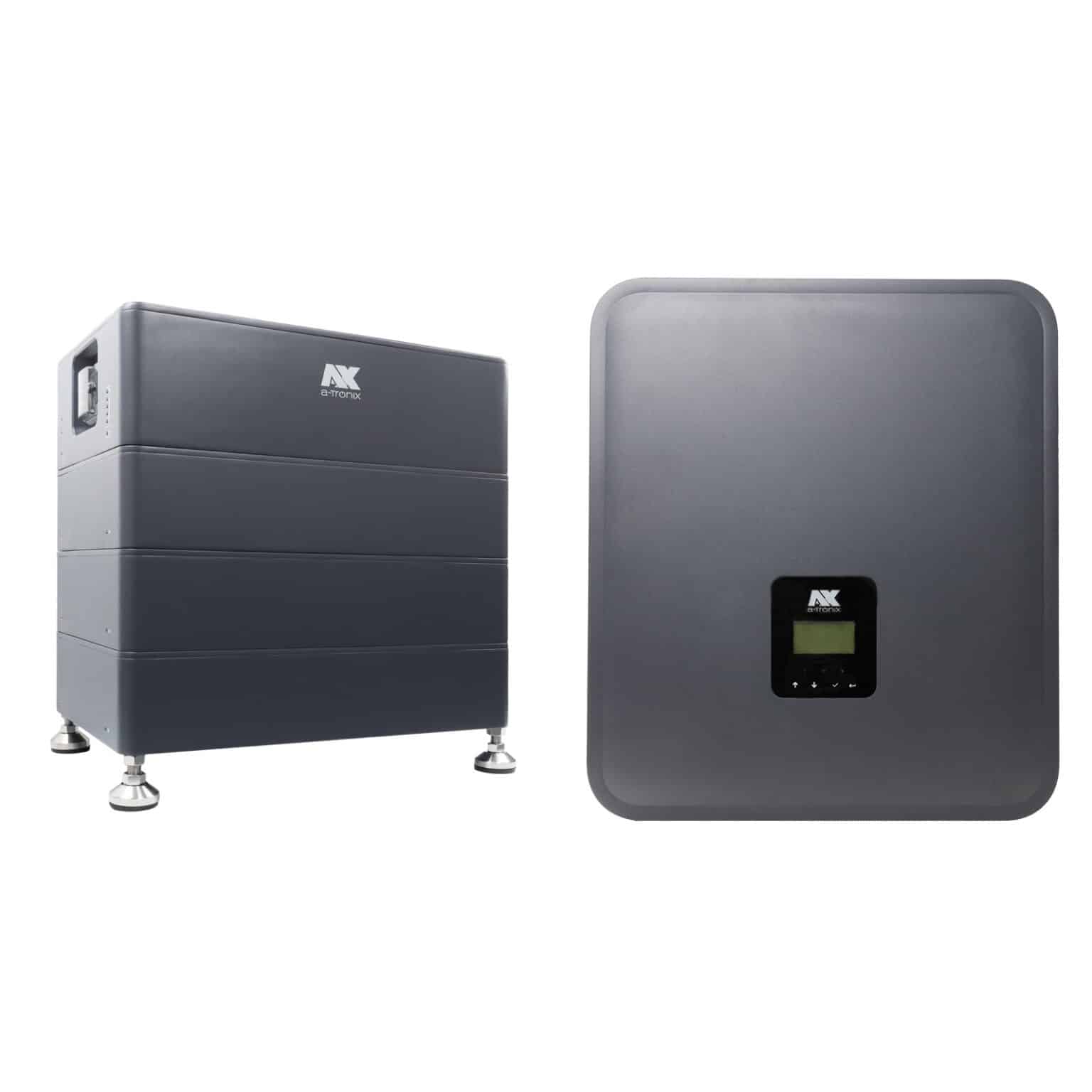Industrial and commercial storage
Store energy intelligently and reduce costs
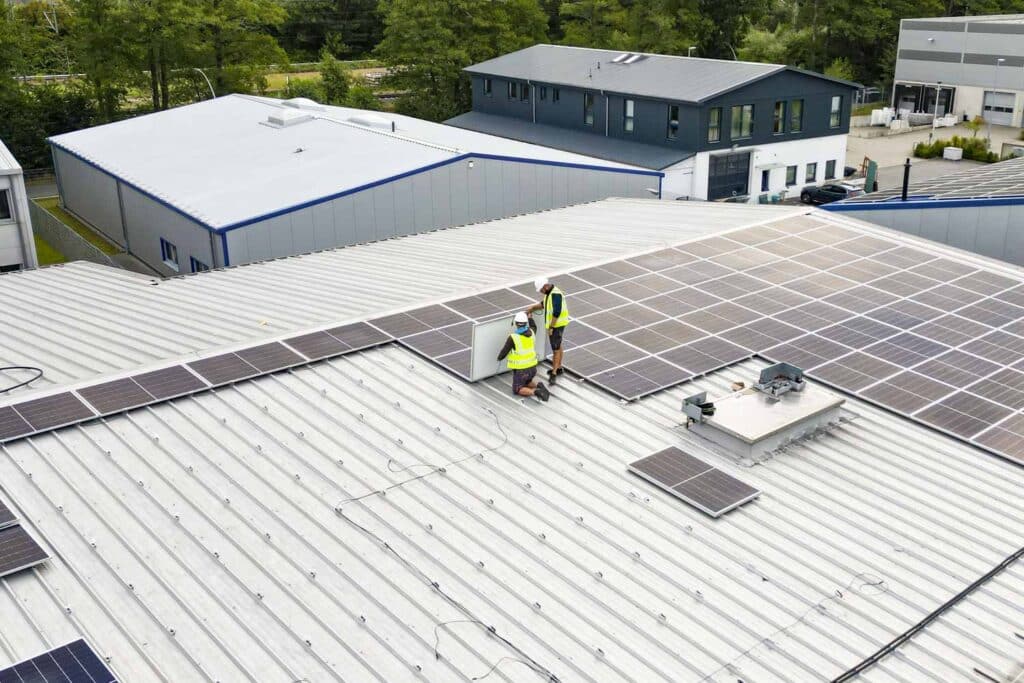
Energy is one of the biggest cost factors for companies - and at the same time one of the biggest levers for savings and sustainability. Energy storage reduce energy costs for industrial, commercial and agricultural companies and increase self-consumption and independence. Find out from us how this works.
With AKKU SYS, you can rely on scalable and future-proof energy storage systems (ESS). From compact battery systems for smaller commercial operations to powerful large-scale storage systems for industry and grid operators - we have the right solution for you.

Our top brands for commercial storages
Your advantages
-
Battery storage from 60 kWh to several MWh
Scalable systems and container solutions for companies with high energy requirements or for grid relief up to the megawatt range
-
Battery storage under 60 kWh
For smaller businesses. More information on smaller storage solutions
-
LiFePO4 battery
Safe cell chemistry, high cycle stability, long service life
-
AC and DC-coupled systems
With modular expandability
-
Intelligent energy management systems (EMS)
For maximum efficiency and integration of multiple functionalities simultaneously (Multi-use case)
-
Pre-assembled indoor and outdoor storage units
With heating and cooling systems for maximum reliability
-
More independence, lower costs
Through functionalities such as self-consumption optimisation, Peak shaving, Load shiftingelectricity trading and Time-variable grid charges
-
Large stock & fast delivery
Many storage solutions immediately available for planning security, efficient logistics and flexibility
Why commercial storage is worthwhile now
The expansion of renewable energies is progressing: according to the German Renewable Energy Sources Act (EEG), at least 80 % of gross electricity is to come from renewable sources by 2030. The aim is to achieve a virtually climate-neutral electricity supply by 2035.
For companies, this means
- Flexibilisation of energy consumption is becoming increasingly important.
- Time-variable grid charges, load peaks and the elimination of band load privileges require strategic adjustments.
- New consumers such as heat pumps, electric vehicles and PV systems are changing operational energy requirements.
- Sustainability and self-sufficiency are becoming increasingly important - not only economically, but also in terms of corporate strategy.
It is becoming increasingly important to respond flexibly to fluctuating Renewable energies This means being able to react to the increasing demand for energy - whether through direct utilisation or the use of battery storage for later use. Companies will be rewarded with falling energy costs if they adapt to these circumstances.
By creating additional storage capacity for renewable energy, they also make an important contribution to relieving the load on the electricity grid and decarbonising the energy sector.
Commercial storage as an economical solution
The versatile application possibilities of commercial storage systems mean that the investment pays off for many companies after just a few years. 4-8 years amortised. The combination of self-consumption optimisation, peak shaving, load shifting and electricity trading results in considerable savings potential, which strengthens competitiveness in the long term.
Self-consumption optimisation
Self-consumption optimisation
Companies with their own photovoltaic system can benefit from a Commercial Energy Storage use significantly more of their self-generated electricity instead of feeding it into the grid. When PV electricity is produced, it is often not required in full. A commercial storage system stores this energy and makes it available when demand exceeds your own PV power generation - for example in the evening or on days with less sunshine.
Advantages:
✔ Lower grid procurement costsReduction of electricity consumption from the public grid by maximising the use of self-generated electricity.
✔ Greater self-sufficiencyLess dependence on fluctuating electricity prices and grid availability.
✔ Reduction of feed-in lossesCompanies avoid low feed-in tariffs and use the energy themselves instead.
Peak shaving
Load peak capping (peak shaving)
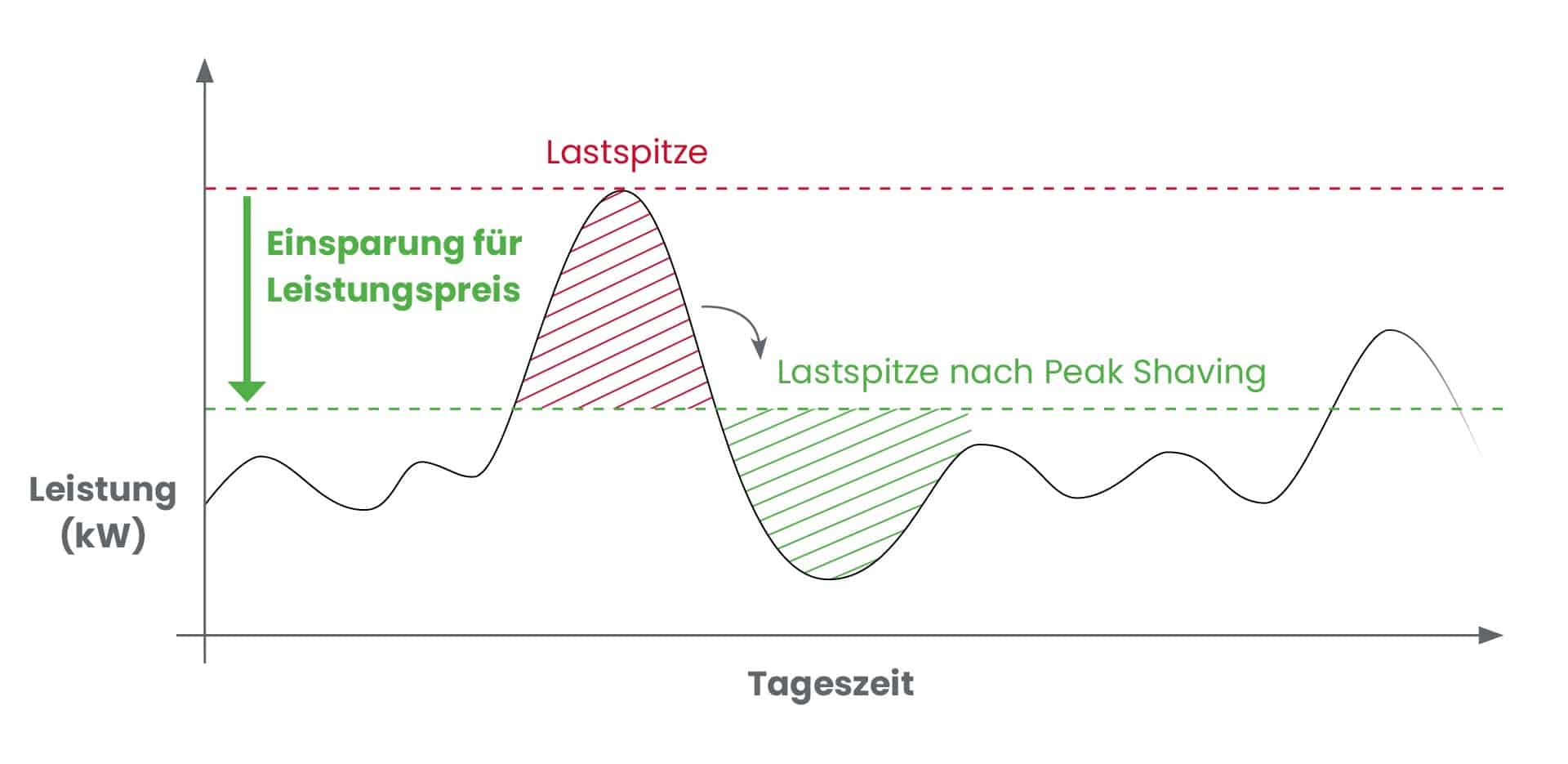
Energy costs are not only made up of the electricity consumed, but also, if consumption exceeds 100,000 kWh per year, the so-called Service price. This is due for the highest power called up within the billing period and can - depending on the network operator - be between 20 € and 220 € per kW lie.
A commercial storage system can balance load peaks in a targeted manner by releasing stored energy to consumers precisely when electricity consumption exceeds the permitted maximum output. This avoids expensive peak loads without affecting production processes.
Advantages:
✔ Reduction in energy costsAvoidance of power prices through targeted peak load management.
✔ Stable net loadRelief for the electricity grid and grid expansion through even energy distribution.
✔ Reduced operating costsPredictable energy costs for companies with strongly fluctuating power requirements.
Load shifting
Load shifting
There are large fluctuations in consumption in many industries. Commercial storage systems enable intelligent load shifting so that energy is utilised precisely when it is available at the lowest cost or when it makes the most sense. For example Industrial companies operate energy-intensive machines with energy from the storage system, which was charged with cheap PV electricity. Agricultural businesses can call up stored solar power in the morning and evening, when energy consumption is at its highest.
Advantages:
✔ Utilisation of favourable energy timesLower costs thanks to optimised loading and unloading times.
✔ Reduction of the network load: Electricity consumption is controlled in such a way that grid expansion and bottlenecks are avoided.
✔ Flexible energy managementMaximum efficiency through demand-orientated energy distribution.
Electricity trading
Electricity trading & flexibilisation of grid charges
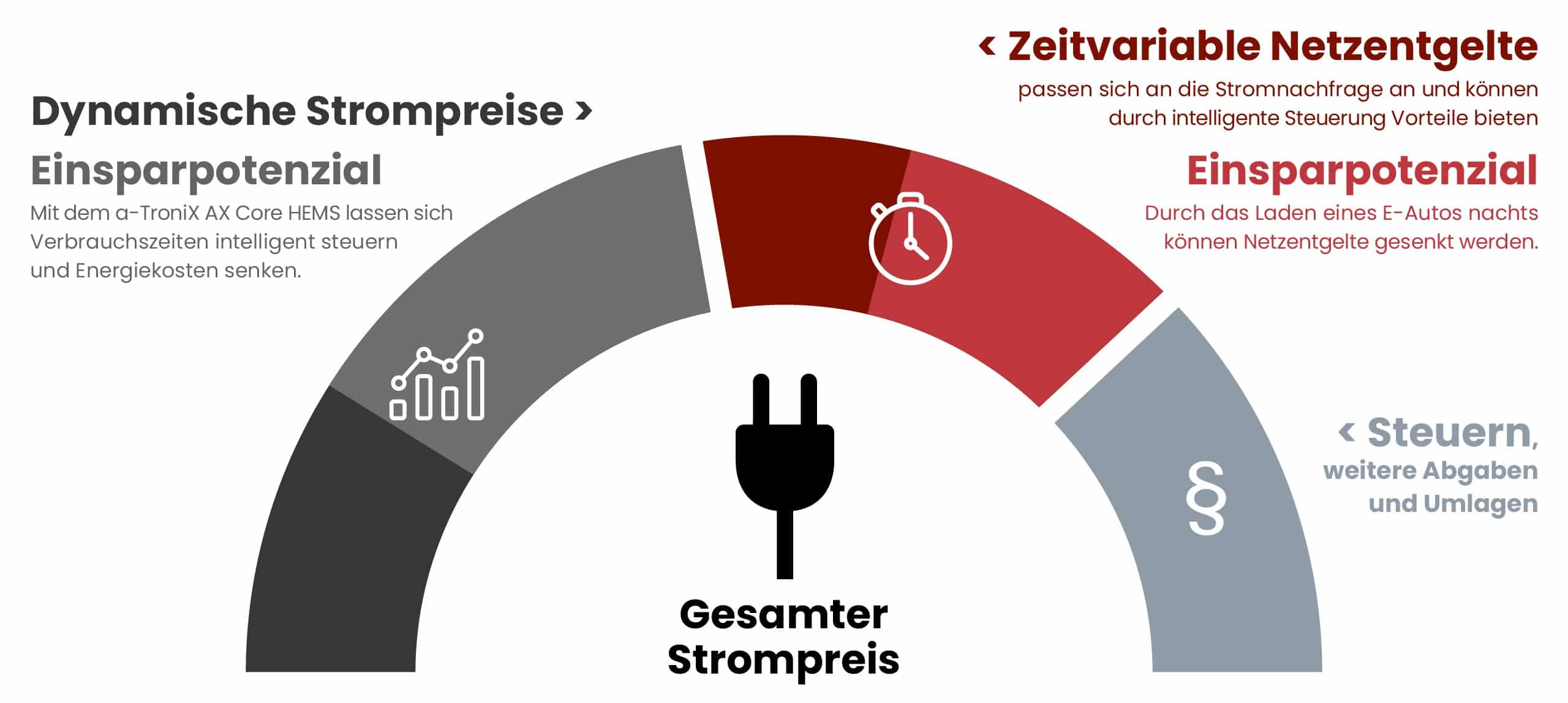
In addition to reducing energy costs, commercial storage facilities also offer the opportunity to generate additional income through electricity trading. Companies can strategically sell surplus electricity or buy energy at favourable prices when the market allows.
Two important markets for electricity trading:
- Day-ahead market - This is where electricity prices are set for the next day. Companies can use favourable times to charge the storage system in a targeted manner.
- Intraday market - Here, short-term price fluctuations can be used to sell electricity profitably or purchase it at a favourable price.
Advantages:
✔ Increased profitabilityCommercial storage facilities amortise more quickly through additional sources of income.
✔ Independence from the energy supplierCompanies can adapt flexibly to market prices.
✔ More planning securityIntelligent energy management ensures stable energy costs.
Multi-use
Multi-use
The true strength of a commercial storage system lies in its capability, cover several use cases simultaneously. Thanks to an intelligent Energy management system can Self-consumption optimisation, peak load capping, load shifting and flexibility marketing combined with each other become.
A so-called Multi-use case maximises the economic efficiency of a commercial storage system by reacting flexibly to different electricity price situations, grid requirements and consumption patterns. For example, a company can store surplus solar energy during the day, use it at peak load times, charge at night using favourable grid electricity tariffs and also act flexibly on the electricity market.
Advantages:
✔ Maximum profitabilityHigher savings through the combination of several utilisation strategies.
✔ Optimum network compatibilityStorage systems react flexibly to electricity market dynamics and grid requirements.
✔ ScalabilitySystems can be expanded modularly depending on the application.
Webinar: Commercial storage in focus
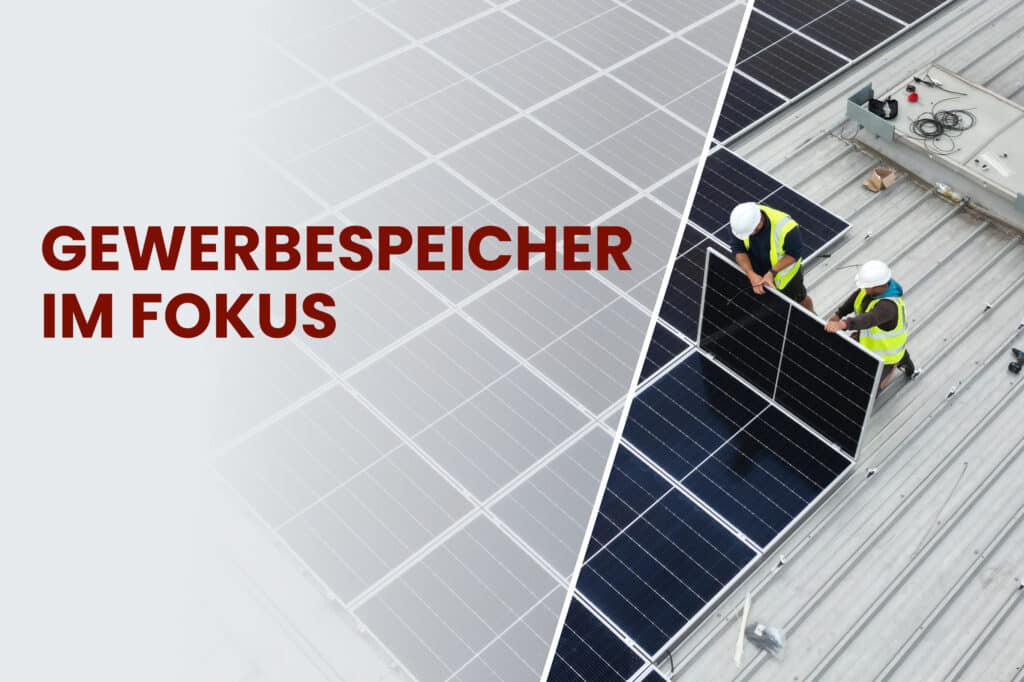
With a commercial storage system, you can lower energy costs, increase self-consumption and reduce peak loads - all with intelligent energy management. In our webinar, you can find out exactly how this works and which solutions are particularly suitable for your industry.
Our experts will give you valuable insights into the latest storage technologies and show you successful practical examples. Of course, you will also have the opportunity to ask individual questions and exchange ideas with the experts.
Already heard? In addition to the webinar, there is an exciting Tech&Talk podcast episode on the subject of commercial storage. Why don't you listen in there too!

Frequently asked questions
You have questions about Commercial storage?
How can I expect the service after the purchase?
Our After Sales team is focused in supporting you quickly and efficiently. Feel free to ask about sales material, training opportunities for your team, installation aids and more.
School AKKU SYS my PV team for new products?
How should a commercial storage unit be maintained?
Commercial energy storage systems require periodic maintenance to keep up their operational performance. The frequency of maintenance can vary based on the manufacturer and the technology used.
How secure is commercial storage?
Commercial storage units from renowned manufacturers have multi-level safety systems, temperature control and tested fire protection measures. Systems such as those from Pramac offer integrated cooling & heating for optimum operational safety.
How high should the electricity consumption be for a commercial storage system to be worthwhile?
The use of a storage system for commercial applications is not only dependent on electricity consumption. The individual application also plays a major role. There are various areas of application where a commercial storage system offers energy optimisation even with very low electricity consumption.
Are there funding opportunities for commercial storage facilities?
Depending on the federal state, there are subsidy programmes and tax benefits for storage solutions. We will be happy to advise you on state subsidies and financing models.
What storage size makes sense for my company?
The optimum storage size depends on your electricity consumption, PV output and desired utilisation (e.g. peak shaving, emergency power, electricity trading). We can help you choose the right energy storage system for your needs.
What savings are possible with a commercial storage unit?
The savings depend on the load profile and the size of the storage system. Practical examples show that companies with a 100 kWh storage system and a 100 kWp PV system can save over € 7,000 a year* - by optimising their own consumption, capping peak loads and trading electricity.
* at € 0.26/kWh electricity price, € 0.08/kWh feed-in tariff, € 150 performance price, 110,000 kWh electricity consumption
We will be happy to help you.




